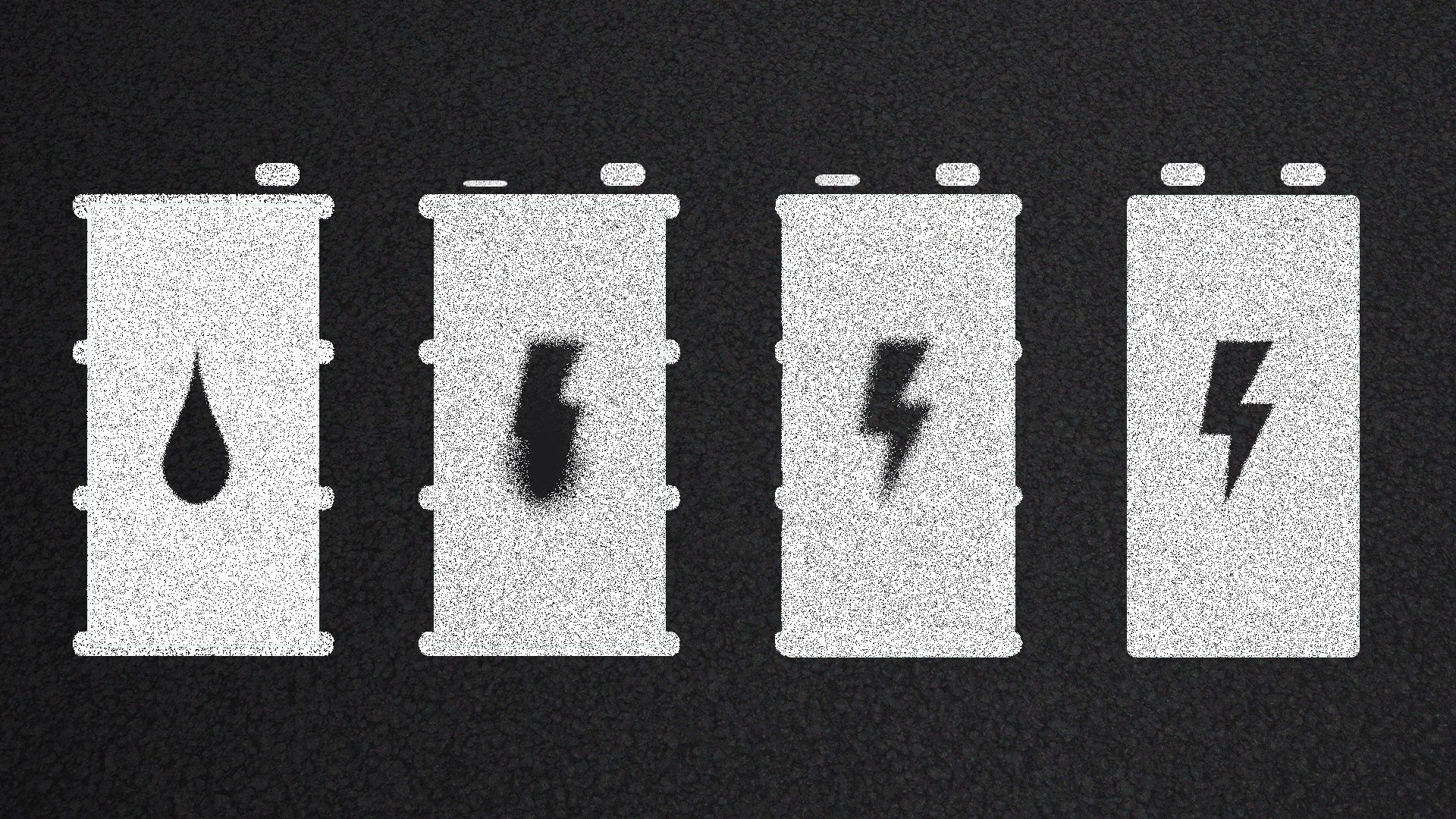| Two White House initiatives unveiled Thursday show how President Biden is struggling to navigate an oil supply crunch without letting his clean energy goals blow even further off-course, Ben writes. Catch up fast: Biden announced the release of up to 180 million barrels of oil from the Strategic Petroleum Reserve and urged U.S. producers to speed up tepid production growth, too. - But he's also invoking executive security powers under the Defense Production Act to try to speed U.S. production of key minerals used in electric car batteries and clean power projects.
Why it matters: The Russian war has forced a president who wants to hasten the transition away from fossil fuels toward embracing more oil production and natural gas exports. It's an effort to lower U.S. gasoline prices, which are a political vulnerability for Democrats, and help Europe curb reliance on Russian gas supplies. What they're saying: Biden and his aides say there's no tension between the goals of nearer-term domestic supply to curb pump prices and tackling climate change with clean energy. In White House remarks, Biden said he's looking "not only to ease the pain that families are feeling right now, but to end this era of dependence and uncertainty, and to lay a new foundation for true and lasting American energy independence." Yes, but: It's not so simple, for all kinds of reasons. - Oil industry officials say the White House is sending mixed signals about oil's domestic future that deter investment. Bloomberg has a good look at this dynamic.
- And a reminder that investor pressure for returns over growth, as well as supply chain constraints, are a check on the pace of output increases, too.
- When it comes to clean energy, Biden's big domestic spending plan remains stuck on Capitol Hill. Environmentalists also fear that more support for oil and LNG will lock in fossil fuel development.
What we're watching, part 1: In the near term, the price of crude oil and gasoline. - The announcement of releasing about a million SPR barrels per day over six months — and word it was coming — helped push crude oil prices downward.
- But one big question is how much crude from emergency stockpiles other countries may release. The IEA has convened an emergency meeting today that could provide some answers.
What we're watching, part 2: That's whether Biden's use of the Cold War-era DPA will be enough to significantly boost domestic output and processing of materials like lithium and cobalt. "The DPA directive seems likely to benefit the few in-service facilities, and mines further along the development pipeline, but it may do little to expedite new facilities," the research firm ClearView Energy Partners said in a note. Go deeper: As gas prices soar, Biden's climate ambitions sputter (New York Times) | 









No comments:
Post a Comment